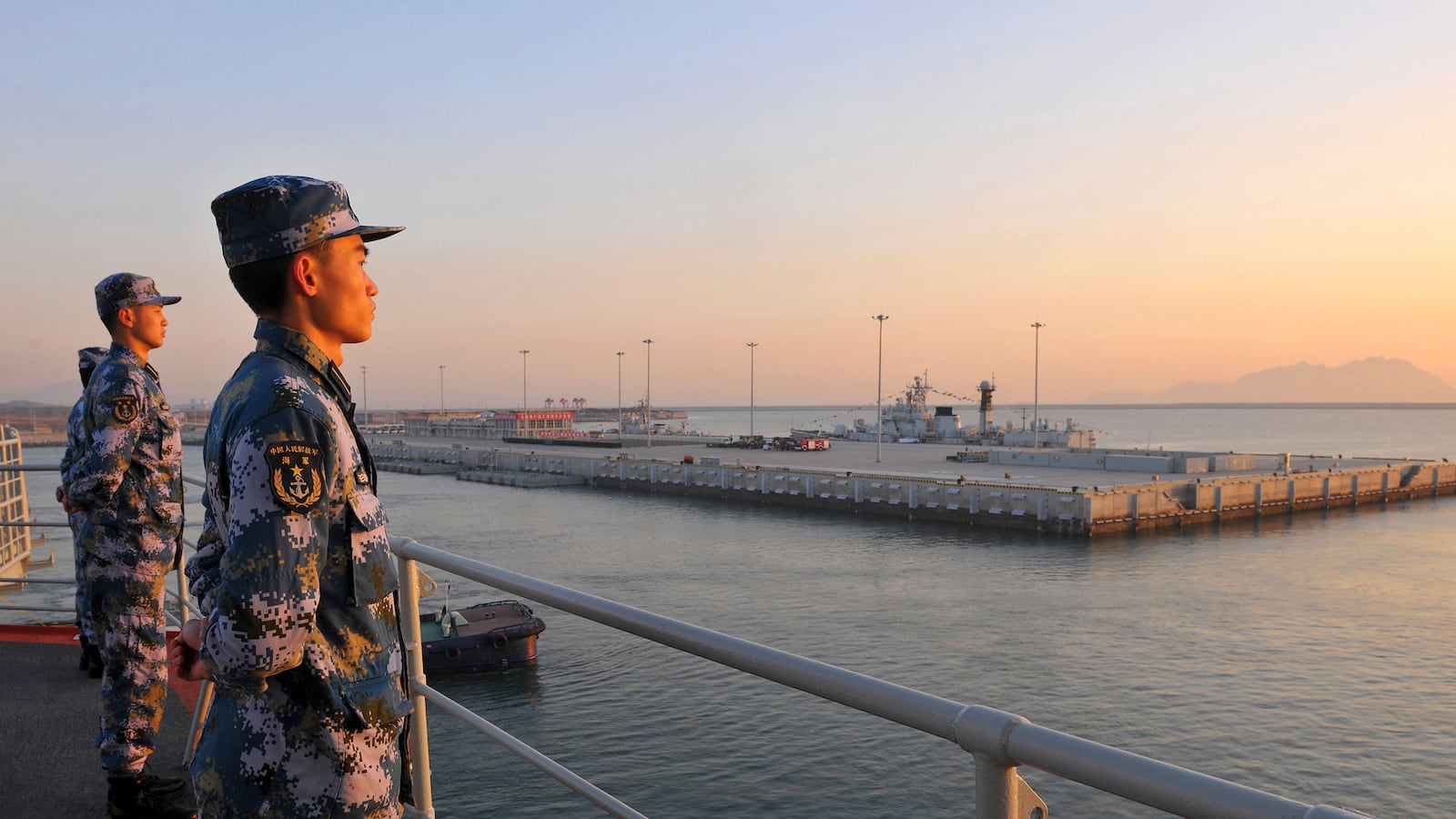I read something terrifying Sunday. Turns out that 10 days ago, amid the rising tension provoked by China’s establishment of an air defense identification zone over territory also claimed by Japan, a Chinese naval vessel came within 200 yards of hitting an American cruiser. Had the two ships collided and sailors from both sides died, the two most powerful countries on earth would have found themselves contemplating war.
But that’s not the scariest part. The scariest part is that I read about the incident on page A21 of The New York Times. As of 11:30 a.m. Sunday, the story wasn’t visible on the Times’ homepage. That same morning, when CBS’s Bob Schieffer interviewed foreign policy big-mouth John McCain, the incident never came up. The relationship between China and America is today’s equivalent of the relationship between Germany and Britain before World War I. It’s the foundation of world commerce and world peace. But it’s fragile. In the history of international affairs, nothing is more predictable than war between rising and status quo powers—especially when they lack similar political systems and cultures. The mere prospect of Sino-American war would change the world in ghastly ways. Yet American politicians and pundits devote far less attention to China than to countries with far less power. At Chuck Hagel’s hearing to be defense secretary, Israel was mentioned 178 times, Iran 171 times, and China five times.
The lack of a robust American political discussion about China is strange. The business press is obsessed with China. Ordinary Americans know that China’s economic rise substantially impacts their lives. And in the 1950s, China policy was what Israel policy is today: a deeply ideological, viciously partisan issue. Harry Truman’s supposed “loss” of China to the communists helped drive McCarthyism.
So why isn’t the rising tension between America and its largest competitor a big political issue? Because although contemporary American foreign policy isn’t isolationist, contemporary American political commentary is.
You need to go back to 9/11 to understand why. Those attacks sparked a ferocious three-way foreign policy argument. In the first camp were neo-imperialists like John Bolton and William Kristol, who wanted America to use the “war on terror” to extricate itself from international constraints and dramatically extend its power in the Middle East. In the second camp were liberal interventionists like Thomas Friedman, George Packer, and Samantha Power. Many in this camp supported the Iraq War; some, like Power, did not. But in general, they wanted to extend the Clinton administration’s interventionist policies within a multilateral framework that would legitimize American power. In the third camp were critics like Glenn Greenwald and Ron Paul, who opposed interventionism in both its unilateral and multilateral guises as a threat to American liberty.
Were the neo-imperialists still strong, they would be loudly agitating for a new cold war with China. Indeed, Kristol’s Weekly Standard was doing just that in the months before 9/11. But two failed wars and a massive national debt have made their ultra-expensive, ultra-bloody foreign policy vision untenable. Even Fox News no longer promotes it much. The neo-imperialists do retain influence on Iran, where strong domestic lobbies, both Christian and Jewish, make politicians take interest. Where those don’t lobbies exist, as on China, it’s hard to make politicians and TV anchors care.
The liberal interventionists, though dominant inside the Obama administration, can’t spark a public debate, either. Progressive political commentary today is defined by the struggle against the Tea Party over domestic policy. The only foreign policy issues that spark much attention are those, like Iran, which remind liberals of the run-up to the Iraq War. Were the neo-imperialists able to turn toughness on China into a Republican cause célèbre, liberals might respond. But without the familiar cast of Bush-era villains to rally against, it’s hard to get progressive pundits interested.
On both left and right, the voices gaining the most traction fall into a third camp, which questions why America needs to be patrolling the Western Pacific at all. To people like Greenwald and Paul, who have expended vast energy battling post-9/11 infringements on personal liberty, tension with Beijing must look like another excuse to rev up the national security state. That means they’re unlikely to focus much attention on what happens in the South China Sea, either.
So the Obama administration finds itself in the odd position of making hugely consequential decisions about how strongly to resist China’s expanding reach in the absence of virtually any high-profile debate in Congress or the media. Would more public discussion improve Obama’s policies? Who knows? But it would force the administration to explain publicly why it’s worth risking war to ensure American access to bodies of water most Americans have never heard of. We’re better off hearing those arguments presented—and challenged—now, while our ships and theirs are still 200 yards away.
Correction: The original version of this article inaccurately described the Chinese ship in question. It was an escort vessel, not an aircraft carrier.






